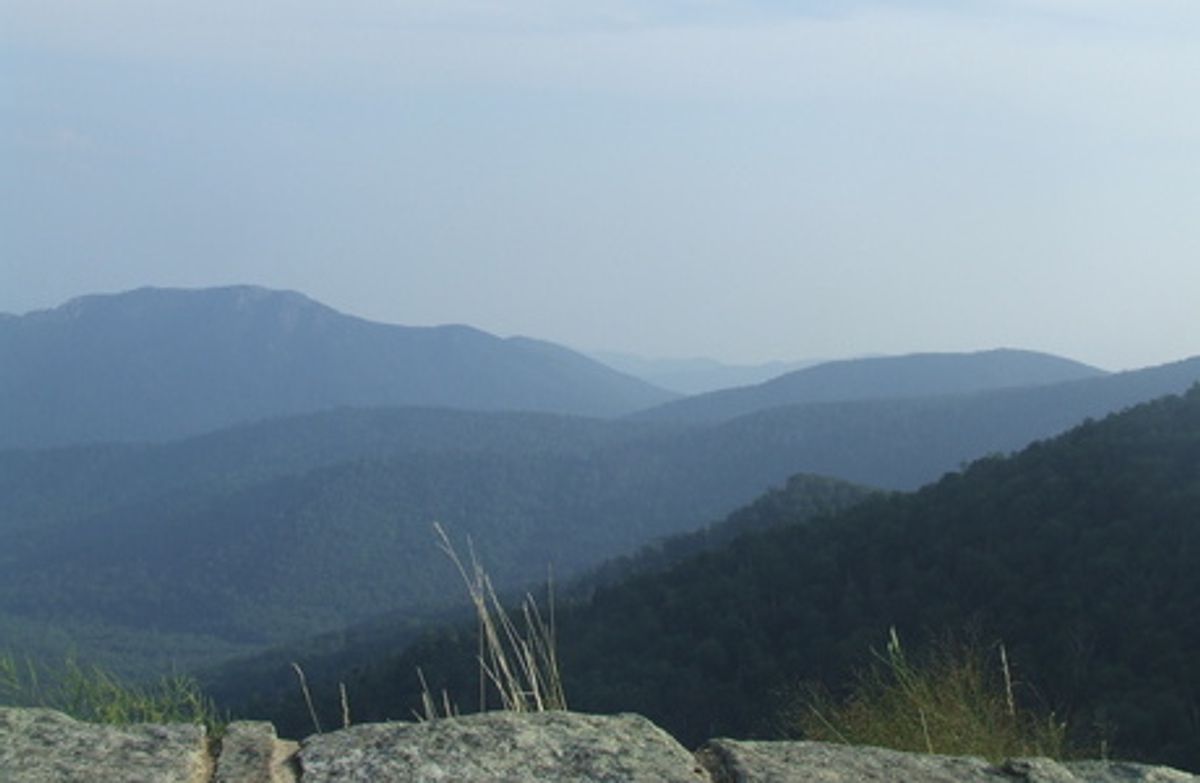Last year Spectrum had occasion to draw attention to cyber threats to Virginia's state computer systems. Now the focus is on climate change and Virginia's major tourist attractions, with the release last week of a report by the Rocky Mountain Climate Organization and the Natural Resources Defense Council: Profile of Virginia's Special Places in Peril.
The report addresses how climate change could affect small sites like Jamestown and one very big one, the gorgeous Shenandoah National Park and its famed Blue Ridge Highway, built during the New Deal as one of FDR's showcase work generation projects. In a press briefing, representatives of NRDC and the Rocky Mountain Climate Organization joined with Virginia conservationists to spell out how global warming could affect places that draw 6 million visits annually and account for 4,000 in-state jobs.
I have to confess finding the warnings about the Blue Ridge somewhat underwhelming. Yes, I don't doubt that the timing and character of the spectacular fall colors may be affected and that ground-feeding birds may be threatened. Yes, it is a really remarkable thing that this greatest of eastern parks is just "a tank of gas away" for many tens of millions of people, some living as far away as New York City. (My son and I discovered that last summer when we drove down from Brooklyn and took the pictures accompanying this post.) But frankly, my gut tells me that even with some pretty unwelcome effects from climate change, experiencing the Shenandoah will be just as astonishing 75 or 100 years from now as it is today.
Jamestown, ironically, is perhaps another story. The site is little and not much to look at. But it is after all the exact spot where Europeans landed in 1607 to establish their first permanent settlement in North America, as every grade schooler learns. No doubt it will be permanently submerged by the end of the century--and so will many another equally compelling site around the world.
At the briefing I naturally wondered why a Rocky Mountain organization was examining an Appalachian park and an Atlantic monument. The answer is that RMCO has been systematically examining the impact of climate change on major national parks, starting in the west, with special attention in one report to Glacier National Park. But there also is a not particularly hidden agenda. In the last year, the Virginia attorney general has been conducting something of a crusade against climate activism: He sought to take legal action in connection with the climategate research imbroglio, and he has taken a leading role in challenges to the Environmental Protection Agency's authority to regulate carbon.
NRDC's Theo Spencer said in opening remarks last week that the report is meant to convey (among other things) that there are more constructive ways of addressing climate change than to conduct a "witchhunt against climate scientists." And the report concerns issues, Spencer continued during the Q&A, that are unfolding "in DC policymakers' backyard."



